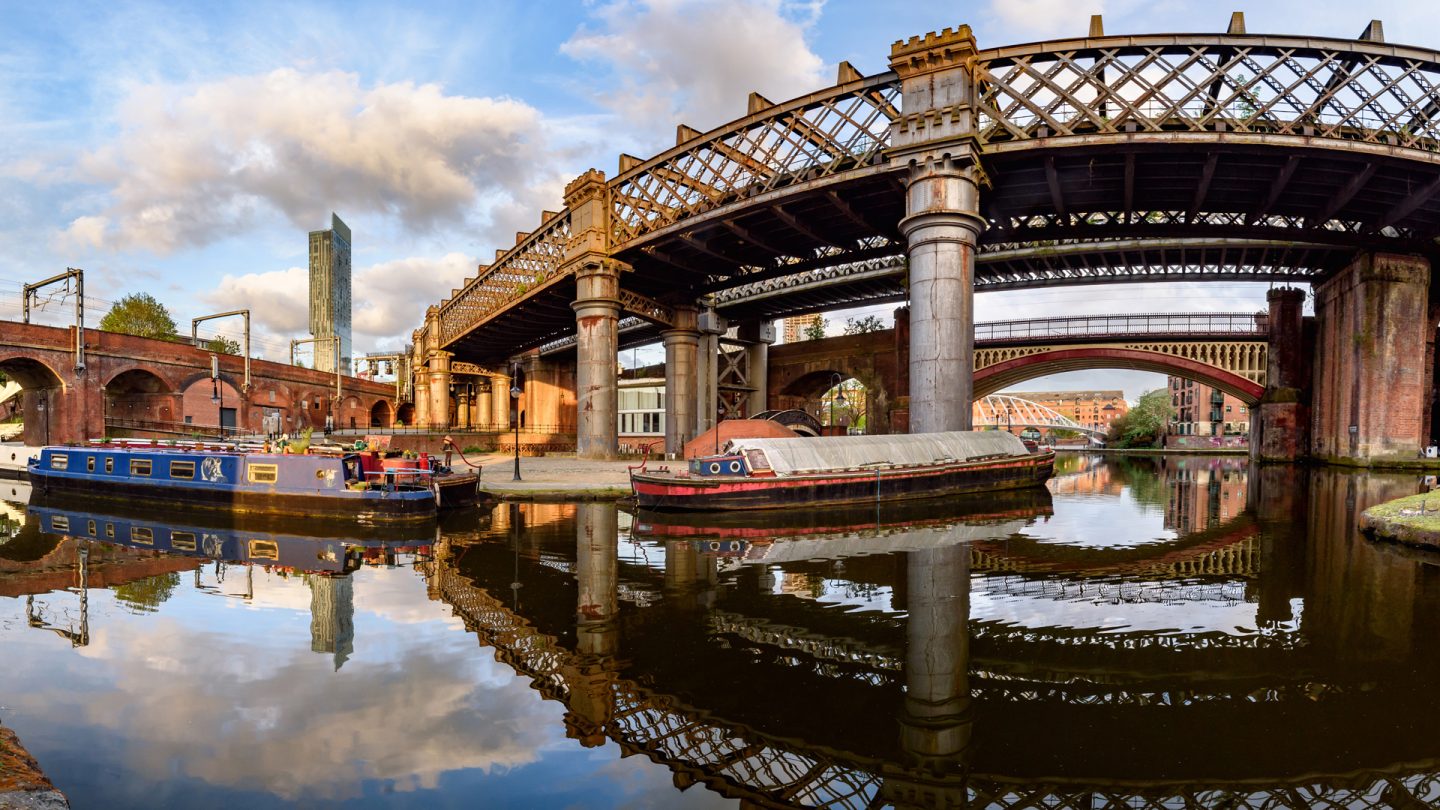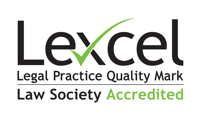
Modern Slavery & Human Trafficking Defence Lawyers
Put your trust in Clifford Johnston & Co.
- Expert Defence for Human Trafficking & Modern Slavery
- Law Society Criminal Litigation Accreditation
- We Defend with Discretion & Confidence
- Contact us Today for Specialist Advice
Defence Solicitors for Mordern Slavery & Human Trafficking Offences
Offences under the Modern Slavery Act 2015, including human trafficking and forced labour, are very serious and complex, with convictions often resulting in substantial prison sentences. It is vital that, if you are accused of being involved in a crime covered by the Modern Slavery Act, you seek urgent legal advice and representation from an experienced solicitor who specialises in human trafficking and modern slavery to ensure the most favourable outcome for your case.
Here at Clifford Johnston & Co we have a specialist team of serious crime defence solicitors and legal professionals dedicated to handling cases for individuals facing charges of modern slavery and human trafficking. Our team are highly qualified and experienced in the field, and possess the diligence and tenacity to ensure that your case is handled fairly and with the skill it requires.
If you are facing an allegation of Mordern Slavery & Human Trafficking, Clifford Johnston & Co can help.
What is Modern Slavery?
Modern slavery refers to the illegal exploitation of an individual for personal or commercial gain, and may involve acts such as domestic servitude, sexual exploitation, criminal exploitation, forced labour, and organ harvesting. Victims of modern slavery may have been tricked into entering the UK from abroad, and had their money and passport taken away to prevent them escaping, and they are often subjected to abuse and violence.
A modern slavery offence is committed if:
- A person holds another person in servitude or slavery in circumstances whereby the person knows, or ought to know, that the other person is being held in such a way.
- A person requires another person to undertake compulsory or forced labour in circumstances whereby the person knows, or ought to know, that the other person is being forced to perform labour against their will.
If you have been accused of modern slavery, our specialist legal team will do all we can to ensure the most favourable outcome to your case. Please contact us as soon as possible to find out how we can help you.
What is the Modern Slavery Act 2015?
The Modern Slavery Act is designed to combat modern slavery in the UK and consolidates previous offences relating to trafficking and slavery. It is estimated that there is around 25 million victims of human trafficking, forced labour, and child labour globally, and approximately 46 million people across 167 countries worldwide affected by some form of modern slavery.
The Modern Slavery Act applies to UK companies and their subsidiaries with an annual turnover of £36 million, and it currently impacts over 12,000 companies across the United Kingdom. Under the Act, these companies must provide reports to the UK government dealing with their processes and show that due diligence is taken to ensure that their supply chains are free from slavery.
The Act also applies to international commercial organisations, regardless of where they were formed, if they conduct business activities in any part of the UK and reach or exceed the annual turnover threshold.
The Modern Slavery Act ensures that companies are diligent in their duties to eliminate modern slavery from their business operations and their supply chains. All companies governed by the Act must produce an annual report within six months of their financial year-end, which should include a human trafficking statement, their due diligence processes, risk assessments across their operations and supply chains, key performance indicators measuring the actions taken to prevent modern slavery, and staff training on human trafficking and modern slavery.
What Offences are Covered by the Modern Slavery Act 2015?
There are a number of different criminal acts that fall under the term of modern slavery, and which are defined in the Modern Slavery Act 2015. Some of the most common forms of modern slavery include:
- Human trafficking – The illegal smuggling of people into the UK or other countries in order to exploit them, often by way of violence, threats, and coercion.
- Forced labour – When a person is forced to work against their will, often due to threat of punishment, for little or no money.
- Servitude – When a person is forced to provide domestic work via coercion, direct force, or by other means.
- Debt bondage – Money is lent to an individual who is then forced to work in exploitative and unfair conditions in order to pay off the debt.
- Child slavery – The exploitation of children for another’s gain, often via trafficking, labour, or marriage.
- Prostitution and sexual exploitation – When women are trafficked or lured to a different country with the promise of financial gains and a better quality of life, but are instead forced into prostitution.
- Smuggling migrants into the UK – This is when migrants are smuggled illegally into the UK via concealment in vehicles entering the country such as lorries, boats, or aircraft.
If you have been accused of any of the offences covered by the Modern Slavery Act 2015, the allegations you face are very serious and can lead to a substantial sentence of imprisonment. It is vital that you seek legal counsel as soon as possible from an experienced solicitor specialising in modern slavery cases in order to ensure the best possible outcome for your case.
What are the Penalties for Modern Slavery Offences?
Sentencing for an offence pursuant to the Modern Slavery Act 2015 varies depending on several factors including the age of the victims, the number of victims, and the nature of the offence committed. The judge will typically follow several steps in order to determine the appropriate sentence for a defendant, including :
Step One
The judge determines which category the offence fits in by assessing the culpability of the defendant:
- Category A – High culpability which applies to those cases where the defendant played a leading role in the criminal activity with the expectation of substantial financial gain, where significant planning was involved, and/or where there may have been a threat of violence towards the victim.
- Category B – Medium culpability which applies to cases where the defendant played a significant role in the criminal activity, where they involved other individuals in the offence via intimidation or coercion, with the expectation of significant financial or other benefit.
- Category C – Low culpability which is reserved for those defendants who have been involved with the criminal activity via intimidation or pressure, performing a limited role under the direction of others, with little or no expectation of financial gain.
Step Two
The next step is for the judge to assess the harm caused to the victim:
- Category 1 – The victim was exposed to a high risk of death.
- Category 2 – The victim sustained serious and long-lasting physical or psychological harm, they were deceived, or they were forced into sexual activity.
- Category 3 – The victim experienced some physical harm, financial loss, or was exposed to the risk of harm.
- Category 4 – The victim was exposed to limited harm and/or limited financial loss.
The defendant’s culpability and harm are assessed together in order to determine the appropriate sentence. For example, at the higher end of the scale, a CAT 1A offence will usually attract a sentence of between 10 and 18 years imprisonment, with a typical starting point of 14 years. At the lower end of the scale, a CAT 4C offence will incur a sentence ranging from a high level community order to 18 months custody, with a typical starting point of 26 weeks custody. In extreme cases the judge may rule that the defendant is dangerous and may impose a life sentence.
What Defences are there against a Modern Slavery Allegation?
The defence options available to you will depend entirely on the individual circumstances of your case, which is why it is vital to seek legal assistance as soon as possible. Our specialist team of solicitors will review your situation, assess all the evidence against you, and propose a defence strategy that will ensure the most favourable outcome available for your case.
As with any other criminal allegation, it may be that the modern slavery allegation made against you is entirely false. Perhaps your business or property was somehow connected to the offence without your knowledge. If this is the case, we will investigate all aspects of the case put forward by the prosecution and seek to uncover any relevant evidence to demonstrate your innocence.
If you accept that you were involved in a human trafficking or modern slavery offence, we can assist you in respect of mitigation and the things you can do to reduce your sentence. For example if you only played a limited role, or you were coerced into participating in the criminal activity, we can collate evidence to support your defence, such as emails, text messages, and witness testimonies, with the goal of securing a more favourable sentence.
No matter what your situation, our expert team of criminal defence solicitors have the knowledge, experience, and tenacity to handle the complex charges you face, ensuring we build a strong case for your defence.
What should i do if i’m Arrested for a Modern Slavery Offence?
If you are arrested in connection to an offence covered by the Modern Slavery Act 2015, you have certain legal rights.
When speaking to the police or the National Crime Agency it is important to remember the following:
- You have the right to free legal representation
- You do not have to answer any questions
- You can refuse to answer police questions without a solicitor present
- You should seek legal advice before saying anything
- You can choose your own solicitor or use the duty solicitor
The arresting officer must inform you, at the point of arrest, of the reasons for your arrest and they must caution you by saying: “You do not have to say anything. But it may harm your defence if you do not mention, when questioned, something which you later rely on in court. Anything you do say may be given in evidence.”
Following on from a police interview for a modern slavery offence, there are a number of various outcomes, including being released with no further action, being released under investigation or on bail, being detained in custody, and/or being charged with a specific offence.
If you are charged with an offence under the Modern Slavery Act 2015, a hearing date will be set, and you will either be released on bail or remanded in custody until the next available court hearing. Even if you are released by the police with no further action, it is important to know that you could be rearrested in the future if further evidence comes to light.
Contact our Modern Slavery & Human Trafficking Solicitors Today
We are proud to offer expert criminal law services nationally which are affordable and cost-effective.
By choosing to work with us, you will have an exceptional team fighting your corner.
Our Modern Slavery & Human Trafficking Solicitors have an exceptional level of expertise and are an integral department within our law firm of Criminal Solicitors in Manchester
Talk to Clifford Johnston & Co. today.

Need some professional advice?
Do you have any issues that you are worried about? Contact our professional team for a free, no-obligation informal discussion, where we can discuss your particular requirements in greater detail.
















